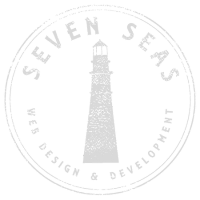When the economy takes a hit, small businesses feel it first and hardest. Every dollar gets stretched, every decision carries more weight, and customer habits shift in unpredictable ways. But if there’s one place that should never be ignored during a downturn, it’s your website. It’s not just your digital front door—it’s the hub of how customers find you, trust you, and decide to spend with you. The good news is that smart, intentional changes to your site can spark real growth and satisfaction, even when the market’s rough.
Make Navigation So Simple It’s Effortless
When budgets are tight, people want to get in and get what they need without the extra clicks. If your site makes someone hunt for pricing, second-guess where your services are, or scroll endlessly to figure out what you even offer, they’re gone. Clean navigation isn’t just good design—it’s a trust builder. Strip it down, organize pages clearly, and think through what your visitor actually wants when they land there, not what you feel like showing off.
Prioritize Speed and Mobile Experience
No one has time for a website that loads like it’s stuck in dial-up. People are mostly browsing from their phones now, especially when casually checking out a service or product. If your site doesn’t load quickly or format properly on a smaller screen, you’re silently turning customers away. This is especially important during downturns, when every lead counts—make sure your site works wherever and however people are using it.
Highlight Real Value, Not Just Features
When wallets tighten, customers start looking for value more than bells and whistles. That means your website should speak directly to what someone gets out of working with you—not just a rundown of services or specs. Instead of saying what you do, show how it helps. This shift in tone is subtle but powerful: it changes your message from “Here’s what we sell” to “Here’s how your life or business gets better.”
Invest in Your Own Web Skills
If you’re constantly relying on others to manage your website or troubleshoot tech issues, it might be time to take matters into your own hands by heading back to school. Gaining deeper web and IT knowledge doesn’t just save you money—it gives you confidence and control over one of your business’s most important tools. Earning an IT degree alongside relevant computer certifications and professional development courses opens the door to a broader skill set that can elevate your site and strategy. And with the flexibility of online programs, you can learn without stepping away from your day-to-day operations.
Use Testimonials Like a Word-of-Mouth Engine
In uncertain times, people lean into trust more than ever. A well-placed customer testimonial carries more weight than most advertising. Use your site to highlight reviews, stories, or client outcomes—anything that shows you’ve delivered and that others stand by you. This isn’t just about adding a reviews page; it’s about weaving trust into the fabric of the site itself, from home to checkout.
Double Down on Clarity in Calls-to-Action
You can have the best site in the world, but if people don’t know what to do next, it won’t matter. During an economic dip, clear calls-to-action (CTAs) become even more crucial. “Get a quote,” “Book your free consult,” “See pricing”—they need to be specific, visible, and direct. Don’t make people guess what the next step is; lead them there like a guide who actually knows what they’re doing.
Keep Content Fresh and Focused on Current Needs
A stale site signals a stale business. It doesn’t have to mean blogging every week, but it does mean updating what matters—seasonal promos, changing offers, or content that responds to what your customers are going through right now. Use your homepage and key pages to meet people where they are. During downturns, being relevant isn’t optional—it’s how you stay visible.
Build for Conversion, Not Just Aesthetics
It’s easy to get caught up in how a site looks. But in a tighter economy, it’s not enough to be pretty—it needs to convert. That means thinking through each element: Does the landing page lead somewhere? Is the product description clear? Is it easy to check out, book, or sign up? Conversion-focused design doesn’t mean flashy—it means purposeful. And it often means the difference between someone bouncing or buying.
Lean Into Community and Local Impact
People want to feel like their dollars are helping real people, not just feeding a machine. Use your website to tell your story—your roots, your mission, your connection to your town or industry. Showcase how you support the local economy or partner with other small businesses. This isn’t fluff; it’s connection. And during hard times, connection drives loyalty.
Work With a Pro to Polish Your Site
Sometimes, the best move is letting someone else step in and bring the clarity you can’t. A skilled web designer—like the folks at Seven Seas Web Design—can help you revamp your site into something that not only looks better but works harder for you. When every visitor matters, a well-optimized, beautifully structured site isn’t just nice to have—it’s essential. You don’t have to figure it all out alone.
Recession or not, your website is one of the few business tools that keeps working even when you’re sleeping, stressed, or sorting through invoices. With the right strategy, it becomes more than a brochure—it becomes your best salesperson, your strongest advocate, and your clearest voice. Economic downturns don’t mean you stop growing—they mean you grow smarter. And often, that starts with hitting “refresh” on how the world sees you online.
Transform your online presence with Seven Seas Web Design, where stunning, high-converting websites are crafted to drive real business growth and make your brand unforgettable.


